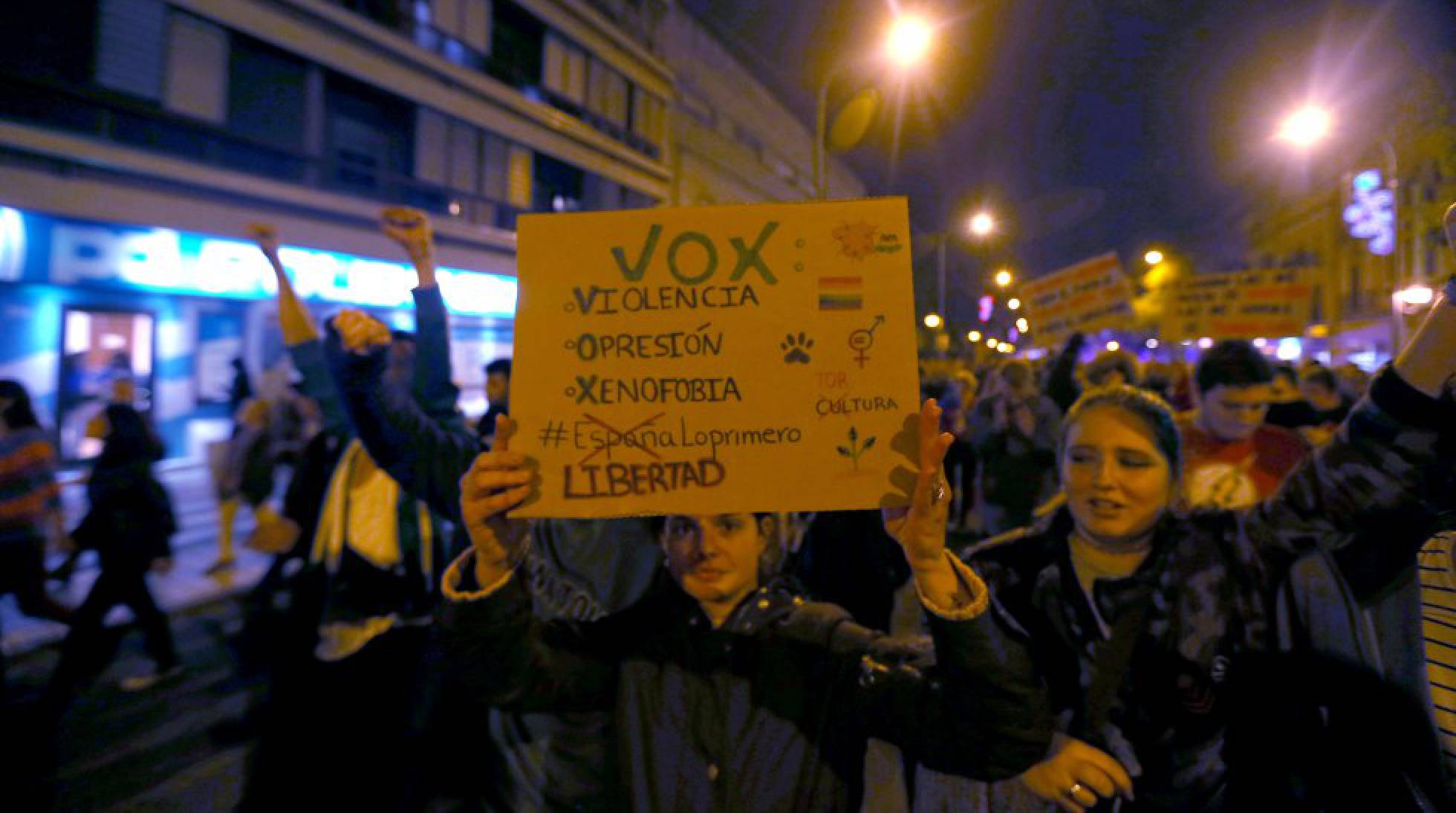Massive rallies were staged in the province of Andalusia and across Spain to protest the rise of the right-wing party, Vox, in the recent elections. The provincial elections in Spain’s most populous province, which has a population of 8.4 million, saw Vox make significant gains with 12 seats in the legislature. Their role has now become crucial in the future of the province. The incumbent social democratic Spanish Socialist Workers’ Party of Andalusia (PSOE-A) failed to gain a simple majority in the 109-seat Andalusian parliament as they lost 14 seats, securing only 33 seats. The conservative People’s Party (PP) emerged second with 26 seats, while the liberal Citizens Party increased their tally to 21. The left-wing coalition of Forward Andalusia (AA) lost 3 seats and ended up with merely 17 seats.
Protests took place in Granada, Málaga and Seville, among other places, El Pais reported.
The results were a shocker for the conventional parties – the PSOE and the PP. Andalusia is a stronghold of the PSOE and the party has been in power since 1978. The media noted that it was the first time a far-right party won seats in a Spanish regional parliament since the country returned to democracy following the death of dictator Francisco Franco in 1975.
In the aftermath of the elections, the ruling PSOE called on all democratic forces to support it to form a new government against the right-wing forces. The Citizens Party is also seeking to form the government, looking to the PSOE and the PP for support. But PP has not ruled out the possibility of taking Vox’s support to form the government. Given the current numbers, the PSOE, along with AA, can only manage around 50 members of legislature, which is 5 seats short of the simple majority needed in the parliament, whereas the PP, with the support of the liberals and Vox, can form a full fledged right-liberal government with the support of 59 members.
Vox was founded in December 2013 and seeks more centralized governance, opposing the current federalist structure which provides autonomy to Catalonia and Basque. Vox is a right-wing conservative party which opposes abortion and same-sex marriage, endorses anti-Islam and anti-immigration discourses, as well as criticisms of multiculturalism.
The Communist Party of Spain (PCE), a constituent of the leftist AA, has called for the “maximum unity of the democratic forces” and implored them to take a “zero tolerance” attitude to the rise of fascism.
The Communist Party of the Peoples of Spain (PCPE) termed the results “bad news for the working class and the people.”
Far right-wing movements have seen considerable success in Europe in recent times, both in terms of mobilization through hyper-nationalist rallies and electoral successes. Recently, an ultra-nationalist rally organized by the far right-wing Casapound in the city of Trieste had created much furore in Spain. In France as well, the far-right is making gains under the leadership of Marine Le Pen. In Germany, the neo-nazi Alternative for Germany (AFd) made inroads in the German parliament in 2017 and even indulged in open surveillance against teachers and political opponents in the country. Earlier this year, the far right-wing Sweden Democrats (SD) achieved breakthroughs in Swedish elections.





